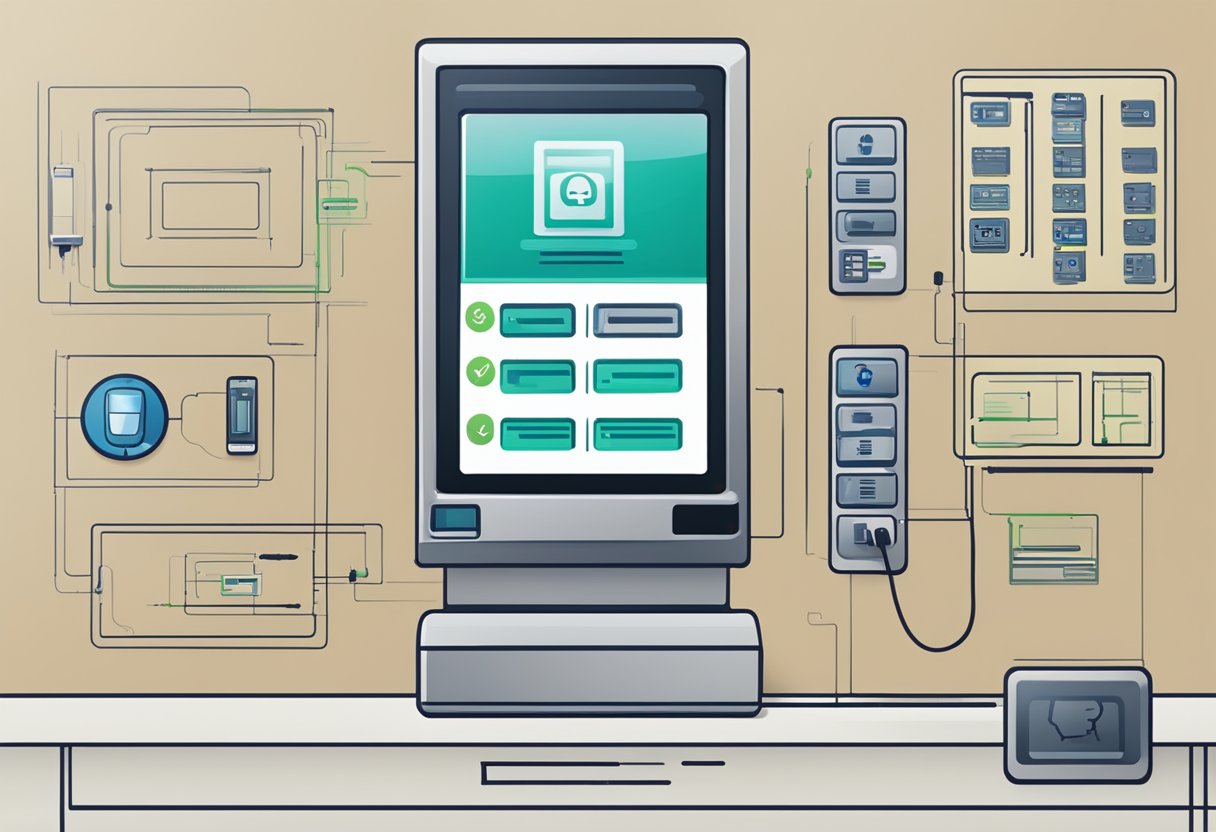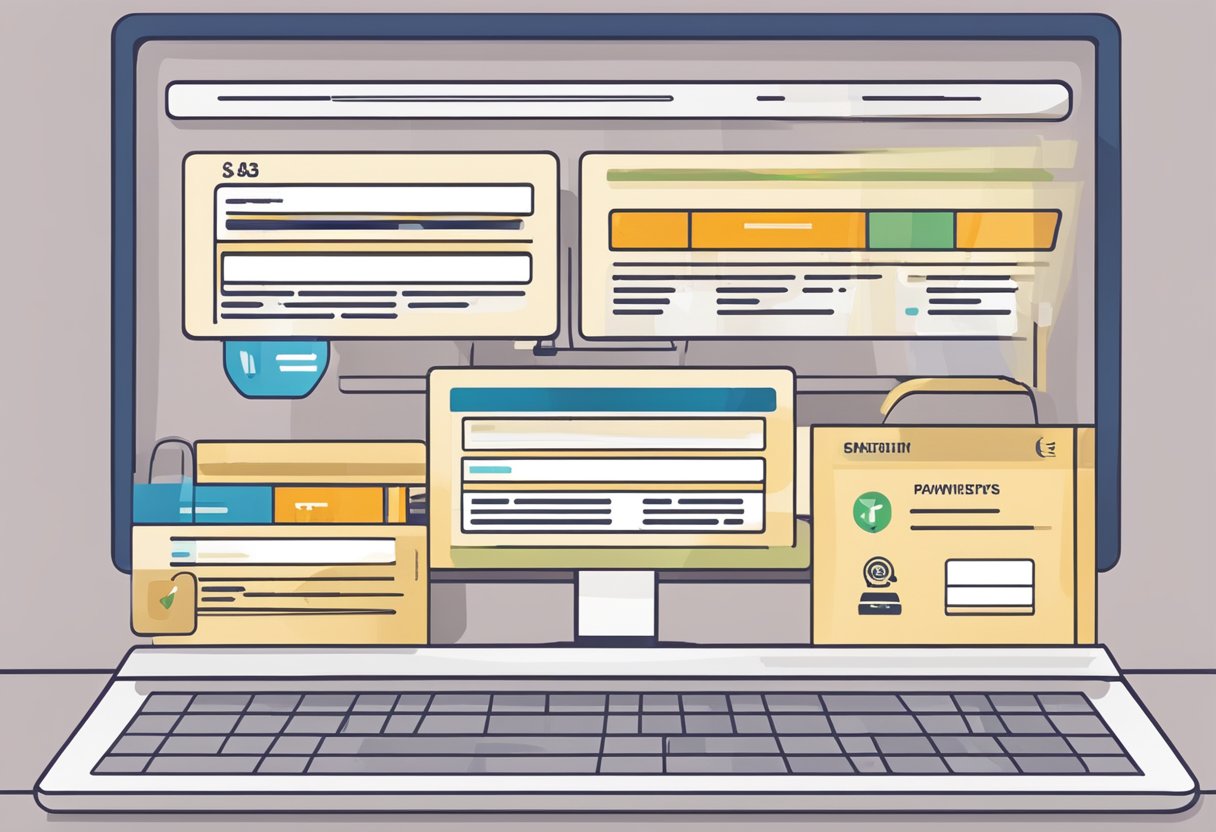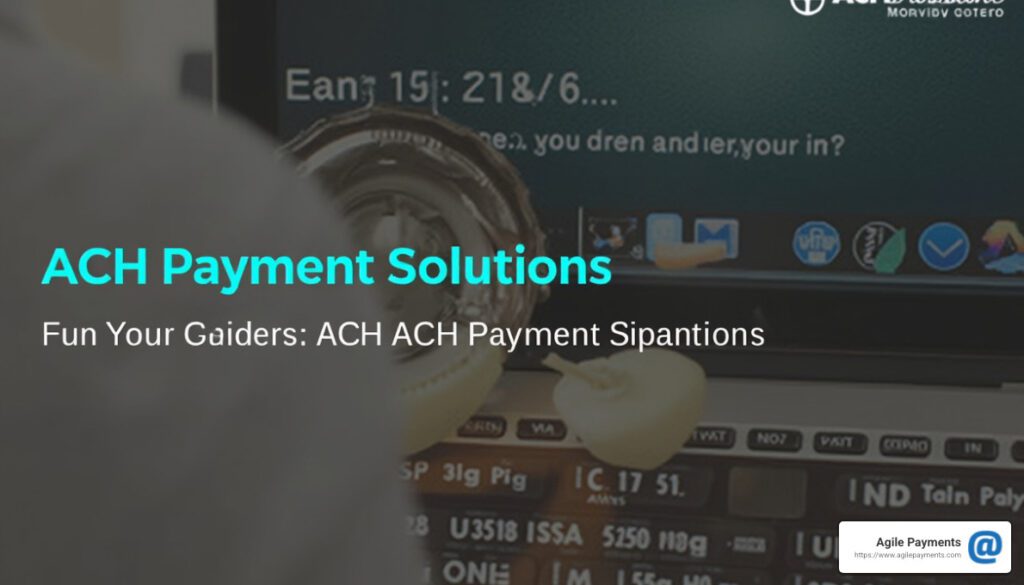Automated Clearing House (ACH) payment gateways are essential services that facilitate the electronic transfer of funds between bank accounts in the United States. These gateways operate as a central hub that processes and settles bulk financial transactions between institutions, businesses, and individuals. The ACH network supports various types of transactions, including direct deposits, payroll, consumer bills, tax payments, and many others, making it a vital component in the financial ecosystem.

Payment processing through ACH gateways offers a cost-effective and efficient alternative to traditional methods like paper checks or wire transfers. Users benefit from
lower transaction fees and
expedited settlement times, which is why ACH payments are increasingly preferred by both merchants and consumers. The reliability and security provided by these gateways heighten their appeal, and strict adherence to regulations ensures integrity throughout the transaction process.
As the demand for electronic payments continues to surge, the role of
ACH payment gateway providers becomes more pronounced. These providers must not only ensure seamless transaction handling but also address challenges such as fraud prevention and compliance with evolving financial standards. Their capability to
integrate with other financial services and adapt to shifting market needs defines the quality and resilience of the payment solutions they offer.
Understanding ACH Payment Processing
 ACH payment processing
ACH payment processing provides a
secure and efficient method for moving funds between bank accounts. It facilitates commerce by allowing for various payment options, including
recurring billing and subscriptions.
ACH Fundamentals
The Automated Clearing House (ACH) network is at the heart of ACH payment processing, enabling financial transactions between banks. ACH transactions are electronic transfers that typically take place through merchant services providers and ACH payment processors. They allow for the direct debit of customer accounts for payments such as utilities, mortgages, and subscriptions. The National Automated Clearing House Association (NACHA) governs the ACH network, establishing the rules for ACH payments.
- Key Players: Banks, ACH payment processors, NACHA
- Transaction Types: Direct deposit, direct payment
- Usage: Recurring billing, subscriptions
ACH Versus Other Payment Methods
ACH processing differs from other payment methods in both speed and cost. Credit card processing and wire transfers often have higher transaction fees, while ACH offers lower costs, benefiting small businesses. eCheck processing is a form of ACH payment that functions similarly to paper checks but electronically.
- Credit Card Processing: Higher fees, immediate payment authorization
- Wire Transfer: Speedy transfer, higher fees
- eCheck Processing: Electronic checks through ACH network
Advantages of ACH for Businesses
Utilizing ACH for transactions can
improve cash flow for businesses due to lower transaction fees compared to credit card processing. ACH payment processing efficiently handles
recurring payments, which is ideal for subscription-based models. By providing an alternative payment option, businesses can reduce costs and offer convenience to customers.
- Costs: Lower transaction fees than credit card processing
- Cash Flow: Improved management due to predictable payments
- Convenience: Seamless recurring billing for customers
Compliance and Security
Adherence to the rules established by NACHA and the Payment Card Industry Data Security Standard (PCI DSS) is critical for ACH payment processing. Data security measures and fraud prevention are crucial components of ACH compliance. Businesses must ensure the safety of customer financial information and maintain robust security practices.
- NACHA: Sets guidelines for ACH payments
- PCI Compliance: Required for handling customer payment information
- Data Security and Fraud Prevention: Essential for protecting transactions
Choosing an ACH Payment Gateway Provider

When selecting an ACH payment gateway provider, businesses must assess various factors to ensure the provider meets their specific needs and integrates well with their current systems.
Factors to Consider
Businesses should evaluate the
reputation and
reliability of the ACH payment provider. The provider’s
history of service,
uptime records, and
security measures are crucial. A provider’s ability to handle different transaction volumes, particularly
large transactions, is also important, especially for mid-sized and high-risk businesses.
Integration and Compatibility
Integration is key for seamless operations. The ACH payment gateway should offer robust
APIs and
developer tools that are easily compatible with existing
POS systems,
accounting software, and
ecommerce platforms like WooCommerce. Providers like
Helcim,
Stripe, and
Authorize.Net are known for offering
flexible integration options.
Support and Services for Businesses
Support services are critical for maintaining smooth payment processes. Look for providers offering robust
customer service with various support channels.
Helcim and
Host Merchant Services, for example, provide strong customer support. Businesses should also assess if the provider caters to their specific type (
high-risk,
subscription-based) and offers
virtual terminals or
shopping cart integration.
Pricing Structures and Processing Costs
The cost structure should be transparent with a clear breakdown of
fees, including
monthly fees and
processing fees. Providers like
Payment Depot and
Stax by Fattmerchant offer
interchange-plus pricing, which can be beneficial for businesses with a high volume of transactions. Consider whether the provider charges for additional services such as
ACH processing or
merchant accounts.
| Provider |
Monthly Fee |
Processing Fee |
Notable Features |
| National Processing |
Varies |
Interchange-plus |
Affordable for large transactions |
| Dharma Merchant Services |
No monthly fee |
Subscription-based pricing |
Eco-conscious business practices |
| GoCardless |
No monthly fee |
Per transaction |
Specializes in ACH |
| Stripe |
No monthly fee |
Pay-as-you-go pricing |
Developer-friendly APIs |
 Payment processing through ACH gateways offers a cost-effective and efficient alternative to traditional methods like paper checks or wire transfers. Users benefit from lower transaction fees and expedited settlement times, which is why ACH payments are increasingly preferred by both merchants and consumers. The reliability and security provided by these gateways heighten their appeal, and strict adherence to regulations ensures integrity throughout the transaction process.
As the demand for electronic payments continues to surge, the role of ACH payment gateway providers becomes more pronounced. These providers must not only ensure seamless transaction handling but also address challenges such as fraud prevention and compliance with evolving financial standards. Their capability to integrate with other financial services and adapt to shifting market needs defines the quality and resilience of the payment solutions they offer.
Payment processing through ACH gateways offers a cost-effective and efficient alternative to traditional methods like paper checks or wire transfers. Users benefit from lower transaction fees and expedited settlement times, which is why ACH payments are increasingly preferred by both merchants and consumers. The reliability and security provided by these gateways heighten their appeal, and strict adherence to regulations ensures integrity throughout the transaction process.
As the demand for electronic payments continues to surge, the role of ACH payment gateway providers becomes more pronounced. These providers must not only ensure seamless transaction handling but also address challenges such as fraud prevention and compliance with evolving financial standards. Their capability to integrate with other financial services and adapt to shifting market needs defines the quality and resilience of the payment solutions they offer.
 ACH payment processing provides a secure and efficient method for moving funds between bank accounts. It facilitates commerce by allowing for various payment options, including recurring billing and subscriptions.
ACH payment processing provides a secure and efficient method for moving funds between bank accounts. It facilitates commerce by allowing for various payment options, including recurring billing and subscriptions.
 When selecting an ACH payment gateway provider, businesses must assess various factors to ensure the provider meets their specific needs and integrates well with their current systems.
When selecting an ACH payment gateway provider, businesses must assess various factors to ensure the provider meets their specific needs and integrates well with their current systems.
 Payment processing through ACH gateways offers a cost-effective and efficient alternative to traditional methods like paper checks or wire transfers. Users benefit from lower transaction fees and expedited settlement times, which is why ACH payments are increasingly preferred by both merchants and consumers. The reliability and security provided by these gateways heighten their appeal, and strict adherence to regulations ensures integrity throughout the transaction process.
As the demand for electronic payments continues to surge, the role of ACH payment gateway providers becomes more pronounced. These providers must not only ensure seamless transaction handling but also address challenges such as fraud prevention and compliance with evolving financial standards. Their capability to integrate with other financial services and adapt to shifting market needs defines the quality and resilience of the payment solutions they offer.
Payment processing through ACH gateways offers a cost-effective and efficient alternative to traditional methods like paper checks or wire transfers. Users benefit from lower transaction fees and expedited settlement times, which is why ACH payments are increasingly preferred by both merchants and consumers. The reliability and security provided by these gateways heighten their appeal, and strict adherence to regulations ensures integrity throughout the transaction process.
As the demand for electronic payments continues to surge, the role of ACH payment gateway providers becomes more pronounced. These providers must not only ensure seamless transaction handling but also address challenges such as fraud prevention and compliance with evolving financial standards. Their capability to integrate with other financial services and adapt to shifting market needs defines the quality and resilience of the payment solutions they offer.
 ACH payment processing provides a secure and efficient method for moving funds between bank accounts. It facilitates commerce by allowing for various payment options, including recurring billing and subscriptions.
ACH payment processing provides a secure and efficient method for moving funds between bank accounts. It facilitates commerce by allowing for various payment options, including recurring billing and subscriptions.
 When selecting an ACH payment gateway provider, businesses must assess various factors to ensure the provider meets their specific needs and integrates well with their current systems.
When selecting an ACH payment gateway provider, businesses must assess various factors to ensure the provider meets their specific needs and integrates well with their current systems.




